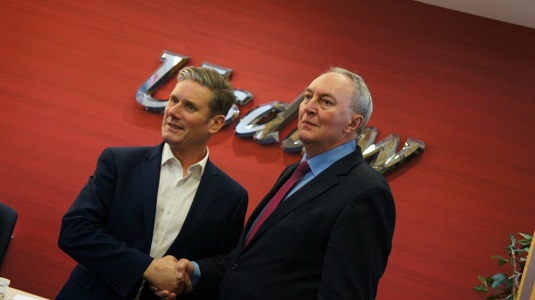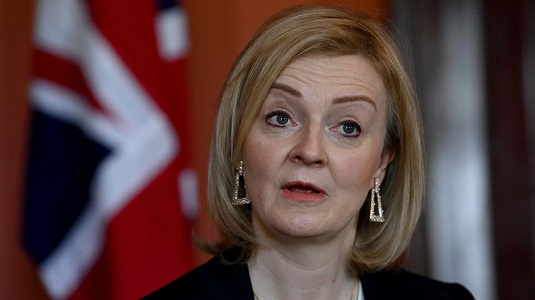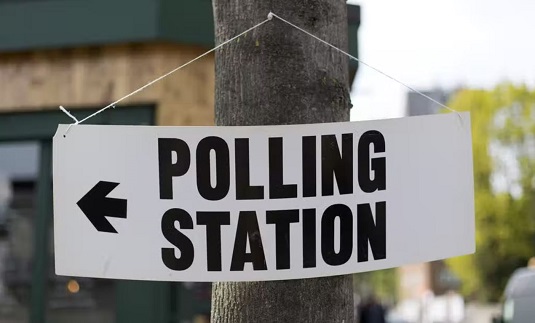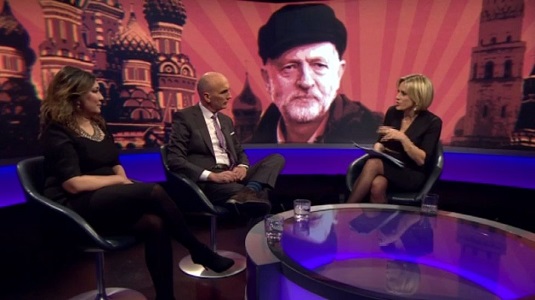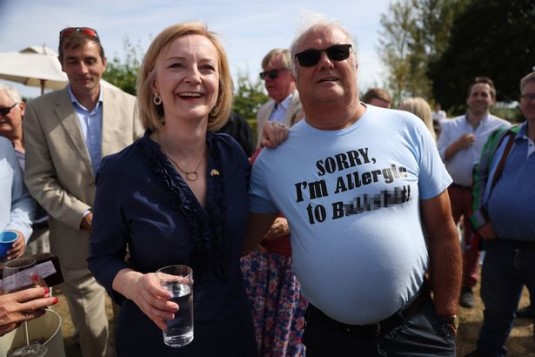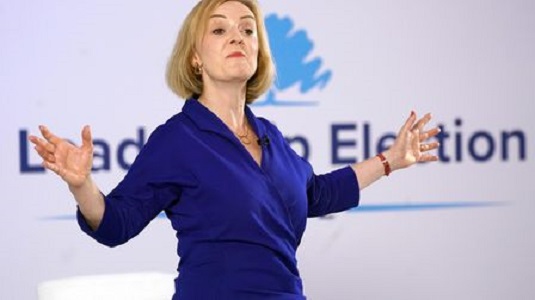
Truss has deftly avoided such self-denying ordinance, and enthusiastically panders to her selectorate's prejudices. Her stump speech has barely changed for two months. There are the digs at the political correctness she was force fed at school, which is likely to be concocted nonsense considering she left in 1991. There's the cringe of "aspiration nation", talk of new ways of doing things and "boldness", and her commitment to junk all EU law by the end of 2023 to unlock the "opportunities" of Brexit. There was wild applause for saying she stood up to Putin, when she couldn't even stand up to Nick Robinson. And, like every other hustings, she "knows what a woman is" and wants to expand the Rwanda scheme.
As this was the last hustings and Truss is expected to become Prime Minister on Monday, Sunak tried to paper over what was often a bad tempered and divisive contest with warm words. He said "Liz" deserved a tribute as a "proud and passionate conservative." The task of the Tories would be to unite around her because only their party can provide the leadership the country needs. Having sucked up, he then quickly spat it back out. The well-rehearsed and oft-heard lines that her prospectus meant maxing out the country's credit card via cutting taxes and running up government borrowing is "not right, responsible, or conservative." Keir Starmer is grateful for his freelance PMQs coach..
Moving on to Truss's questions and answers, LBC's Nick Ferrari didn't provide much of a challenge. Asked why she was focussing too much in Ukraine and not Uxbridge, she said it was her job as foreign secretary to focus on foreign affairs. News for some. Asked about crime, out came the predictable attacks on Sadiq Khan about him being soft. At least she didn't refer to him as 'Mayor Khan', which Tories like to do on their leaflets in the capital's wealthier, whiter areas. But we did get something not emphasised in previous hustings - setting up league tables for police forces. Not likely to go down well with the plod vote.
On energy prices, her vow of silence was maintained in favour of the familiar licks and grooves. No taking money in tax and paying it back in handouts, the suspension on the green levy, reverse the National Insurance rise, and increase the supply of energy. Quite how fracking, more North Sea exploration, and ordering more Rolls Royce nuclear reactors will immediately address supply is something she didn't expand on. Nor challenged on by a single host in any of the hustings. She also said there will be a "fiscal event" for household support, and at this stage she's not ruling anything in or out. Yet within five minutes she did exactly that by saying there wouldn't be any new taxes - already setting herself at odds with Labour's popular position and setting herself up for inevitable u-turns.
The rest of the questions should have been easy. Answering a young Tory who wanted Truss to declare trans women were not women, she happily obliged. Truss said Tories need to stand up against "the orthodoxy", and not value people for who they are but for their character and hard work. Cue applause. And then, as if some cosmic joker was pulling the strings, another audience member got up and said he was a British Ukrainian - to enthusiastic clapping. And so, the dread transphobia hasn't gone away - something that should give any labour movement person signed up to this rubbish some pause.
And wrapping up, we got a signature Truss gaffe. An activist objecting to smart motorways asked Truss to consider scrapping them, and if she would do the same for speed limits and make them advisory. He suggested it was up to the judgement of drivers to determine what's safe or not. It was the sort of bat shit question that have so far been screened out by hustings organisers in an effort to make the Tories look half sane. It's not difficult. In 2021 there were 128,000 casualties on Britain's roads, of which 1,560 died, and should have been an open and shut case. "No" was the obvious answer, but because Truss was in full-on pander mode she couldn't resist a non-committal reply and said she would "look at speed limits".
There ends the final lap before Truss becomes Prime Minister. What we've learned from these hustings is a rigidity married to genuine cluelessness, and a tendency to speak before she thinks. We've had the public sector regional pay plan, the suggestion Emmanuel Macron might be "a foe" of the UK, the recordings suggesting British workers "lack application", and now this. The politics, the scapegoating and opportunist bigotry, the foot-in-mouth tendency, here we have a character that, if anything, is even less suited than Boris Johnson to be Prime Minister. And yet here we are. The decay of the Tory party has thrown up another horror, and one that will cause untold damage before the party is dumped from office.
Image Credit
